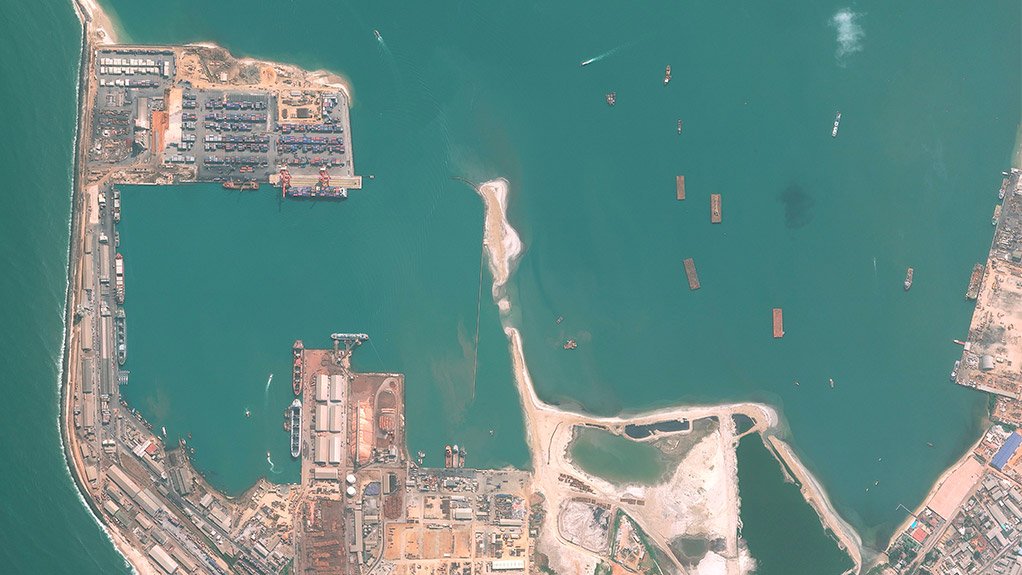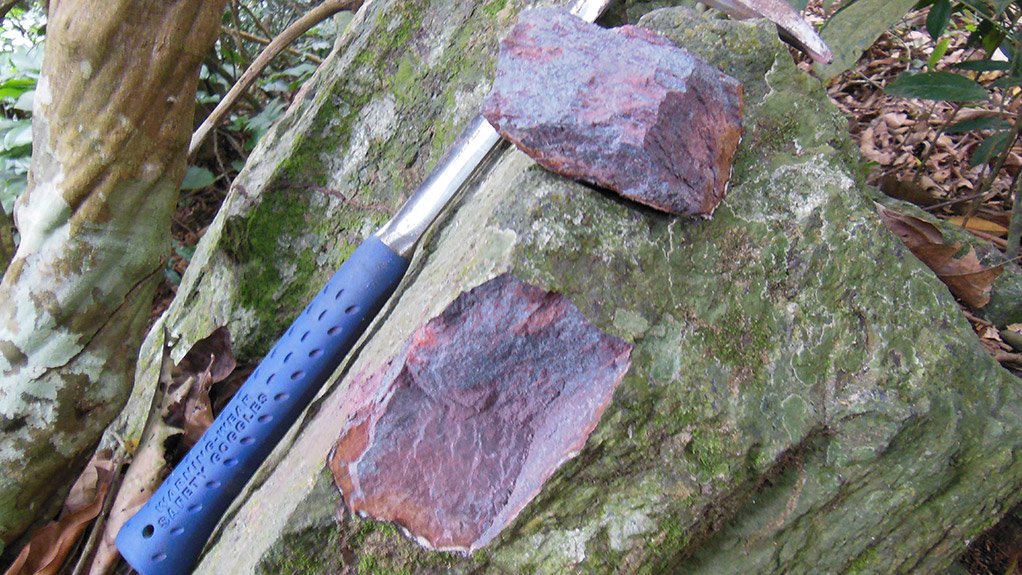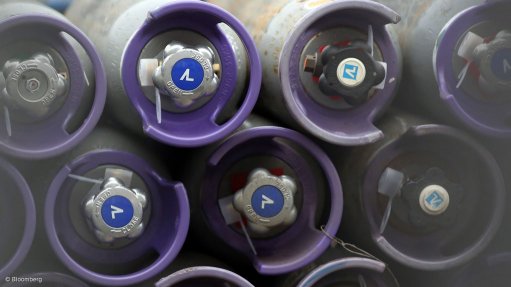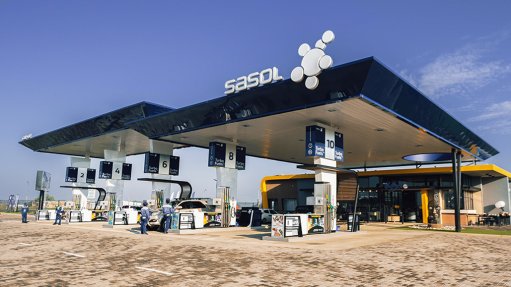Iron-ore developer confident in Congo project



INFRASTRUCTURE ACCESS The Mayoko-Moussondji resource is located 500 m from an existing operational railway that leads to existing deep-water port
BADONDO IRON Equatorial’s initial drilling campaign of 14 holes generated an exploration target of between 1.3-billion tonnes and 2.2-billion tonnes of iron mineralisation
Despite the iron-ore price dropping below $100/t, ASX-listed iron-ore explorer and developer Equatorial Resources tells Mining Weekly that its confidence in its iron-ore projects in the Republic of Congo (Congo) remains strong.
“Equatorial Resources’ projects have robust fundamentals and significant advantages, compared to many of our peers,” says Equatorial Resources CEO John Welborn. “Our flagship project, Mayoko-Moussondji, has the potential to be one of the lowest-cost iron-ore mines in Africa and, crucially, a very short timeline to first production with low capital intensity, which makes sense in the current market.”
Mayoko-Moussondji is located in the south-west region of Congo, and covers a significant 2 400 km2. Equatorial’s exploration activities have already defined a resource of 917-million tonnes at 31.4% iron, which includes a surface hematite resource of 182-million tonnes.
“This surface hematite resource is the base of Equatorial’s plans for Mayoko-Moussondji, as it consists of very friable mineralisation, which is easily upgraded to a premium iron product expected to grade above 64% iron.”
Welborn points out that another fundamental advantage of the project is access to existing transport infrastructure. The resource is located 500 m from an existing operational railway that leads to an existing deep-water port.
“An iron-ore mine requires the ability to get the product to customers – this is the challenge of all emerging projects in Africa. Rocks, rail, port – this is what generates success.”
Equatorial Resources is well advanced along the pathway to production, having already received a mining licence from the government, and hopes to conclude the related negotiations for the project’s mining convention agreement in the third quarter of this year. The mining convention agreement is expected to include rights and terms of access to the government-owned railway and port – a crucial commercial step for the project and the company.
“The negotiations are progressing well and, if successfully concluded, will be a ‘company maker’,” Welborn says.
Further, Welborn told Mining Weekly in April that, while the mining licence provided the company with a 25-year exclusive right to mine the area, “all the fiscal terms of operation, such as tax holidays, exoneration of import rates, the payment of government royalties and the commercial terms of the company’s access to government infrastructure” were included in the convention agreement.
The company noted in its March quarterly activity report that Equatorial’s technical team, with input from consulting firms WorleyParsons and Orelogy, continued to advance pit-to-port feasibility work to improve project returns and reduce upfront capital expenditure for the project. These improvements are expected to be included in a prefeasibility report for the project to be released during the third quarter of the year.
About Mayoko-Moussondji
The project comprises a three-stage development plan, which incorporates the hematite and magnetite components of the maiden resource.
Welborn emphasises the company’s current focus is on the first and second stages of the project, which will be based on the near-surface hematite material. “The large underlying magnetite orebody represents an opportunity for a much larger scale future operation.”
During Stage 1, Equatorial Resources plans to produce a Mayoko fines iron product, with an iron grading of 64.1%, starting at 500 000 t/y, after which it plans to ramp up to two-million tonnes a year within 18 months during Stage 2.
“A significant advantage of our planned operations is that the project is modular and scalable and, while we are working on a two-million-tonne-a-year operation, we see a much larger opportunity. We have quite modest ambitions for the first stage of the project,” he says.
Nevertheless, Welborn highlights the “compelling economics” of the first phases of the project, as the scoping study identified a total capital cost to get to 2-million tonnes a year of only $230-million and an operating cost for free-on-board iron of $41/t.
Badondo Iron Project
Included in Equatorial Resources’ portfolio is the Badondo iron project, located in the north-west of Congo, within a regional cluster of other noteworthy iron-ore exploration projects, including Australian mining company Sundance Resources’ Mbarga and Nabeba projects, Core Mining’s Avima project and the Gabon government’s Belinga project.
While the project does not yet have a defined mineral resource, Equatorial’s initial drilling campaign of 14 holes generated an exploration target of between 1.3-billion tonnes and 2.2-billion tonnes of iron mineralisation. This exploration target includes 500-million tonnes of high-grade direct shipping ore (DSO) expected to grade above 60% iron.
Welborn emphasises the project remains at an early stage. “Badondo is going to be a monster project and preparation is under way for a much larger drilling programme designed to define a large maiden DSO resource,” he says.
Unlike Mayoko-Moussondji, projects in the far north of Congo are isolated and will require significant investment in new rail and port infrastructure to enable production. Equatorial Resources aims to collaborate with government and other projects in the region to explore potential infrastructure solutions that can be used to benefit the region as a whole and not only the Badondo operation, Welborn notes.
Significant Market for Iron-Ore
While Welborn acknowledges that the fall in global iron-ore prices makes life more difficult for developers, he cites the strength and significant size of the seaborne market as beneficial for upcoming iron-ore projects. He notes that, universally, analysts are predicting that the world will consume increasing quantities of iron-ore for decades to come.
“There remains a significant opportunity to develop iron-ore projects with a low-cost profile. You are not entering into a thin market where additional supply is going to swamp the market.
“The iron-ore price may continue to be volatile, but the projects that can produce high-quality iron-ore at a reasonable cost will indicate a significant profit margin,” he says, adding that Badondo represents a large-scale and long-term iron-ore project that will transform the region and the industry, while Mayoko-Moussondji represents a short-term opportunity to build a profitable project.
Comments
Press Office
Announcements
What's On
Subscribe to improve your user experience...
Option 1 (equivalent of R125 a month):
Receive a weekly copy of Creamer Media's Engineering News & Mining Weekly magazine
(print copy for those in South Africa and e-magazine for those outside of South Africa)
Receive daily email newsletters
Access to full search results
Access archive of magazine back copies
Access to Projects in Progress
Access to ONE Research Report of your choice in PDF format
Option 2 (equivalent of R375 a month):
All benefits from Option 1
PLUS
Access to Creamer Media's Research Channel Africa for ALL Research Reports, in PDF format, on various industrial and mining sectors
including Electricity; Water; Energy Transition; Hydrogen; Roads, Rail and Ports; Coal; Gold; Platinum; Battery Metals; etc.
Already a subscriber?
Forgotten your password?
Receive weekly copy of Creamer Media's Engineering News & Mining Weekly magazine (print copy for those in South Africa and e-magazine for those outside of South Africa)
➕
Recieve daily email newsletters
➕
Access to full search results
➕
Access archive of magazine back copies
➕
Access to Projects in Progress
➕
Access to ONE Research Report of your choice in PDF format
RESEARCH CHANNEL AFRICA
R4500 (equivalent of R375 a month)
SUBSCRIBEAll benefits from Option 1
➕
Access to Creamer Media's Research Channel Africa for ALL Research Reports on various industrial and mining sectors, in PDF format, including on:
Electricity
➕
Water
➕
Energy Transition
➕
Hydrogen
➕
Roads, Rail and Ports
➕
Coal
➕
Gold
➕
Platinum
➕
Battery Metals
➕
etc.
Receive all benefits from Option 1 or Option 2 delivered to numerous people at your company
➕
Multiple User names and Passwords for simultaneous log-ins
➕
Intranet integration access to all in your organisation




















